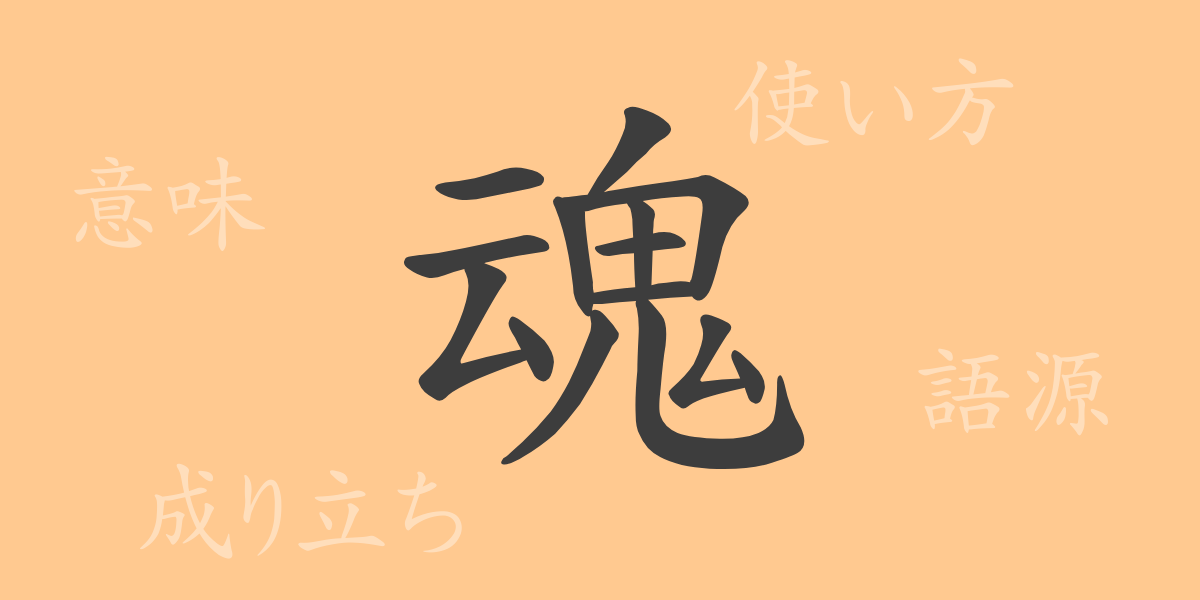At the core of human existence lies the concept of the “soul” (魂(たましい)). This single character encompasses profound meanings that express the essence of life and spirituality. As a common kanji in Japanese, “魂(たましい)” is widely used in literature, daily conversation, psychology, and philosophy. Let’s delve into the origins, meanings, usage, and idiomatic expressions of “魂(たましい)” from its ancient roots to its modern applications.
Origins of 魂(たましい)
The origin of “魂(たましい)” dates back to ancient China. The ancient Chinese used the character to represent human vitality and spirit. The kanji combines “云(うん)” (meaning cloud) and “鬼(き)” (representing a spiritual being), symbolizing the ascent of the soul to the heavens. Over time, this character was adopted into Japanese culture, merging with native beliefs and religious views, thus acquiring richer meanings.
Meanings and Usage of 魂(たましい)
The kanji “魂(たましい)” refers to life force, spirit, and the essence of an individual. It can also denote the core or vital element of something. For instance, it is used in expressions like “He performed with soul” (彼は魂(たましい)がこもった演技(えんぎ)をした) or “This project embodies his spirit” (このプロジェクトには彼の魂(たましい)が込(こ)められている).
Readings, Stroke Count, and Radical of 魂(たましい)
The kanji “魂(たましい)” has multiple readings and specific structural components.
- Readings: The on’yomi (音読み) is “コン(kon),” and the kun’yomi (訓読み) are “たましい(tamashii)” and “たま(tama).”
- Stroke count: The total number of strokes is 14.
- Radical: The radical is “鬼(きへん)” (oni hen), which signifies a demon or ghost.
Idioms, Phrases, and Proverbs Using 魂(たましい)
There are numerous idioms, phrases, and proverbs incorporating “魂(たましい),” reflecting its deep meanings. Here are a few examples:
- 熟語(じゅくご) (Compound): 魂消(たまげ)る – To be astonished to the point of fainting.
- 慣用句(かんようく) (Idiom): 魂(たましい)を込(こ)める – To do something with passion and enthusiasm.
- ことわざ(Proverb): 魂(たましい)が抜(ぬ)ける – To be extremely shocked or scared, becoming dazed.
These expressions are often used to convey the depth of Japanese emotions and actions, highlighting the richness of the language.
Conclusion on 魂(たましい)
The kanji “魂(たましい)” carries a significant weight beyond being a mere character; it symbolizes the inner world of humans and the mystery of life. From ancient times to the present, its concept has influenced various cultures and philosophies, maintaining a universal value that transcends words. Understanding “魂(たましい)” is an essential part of comprehending our own existence.

























